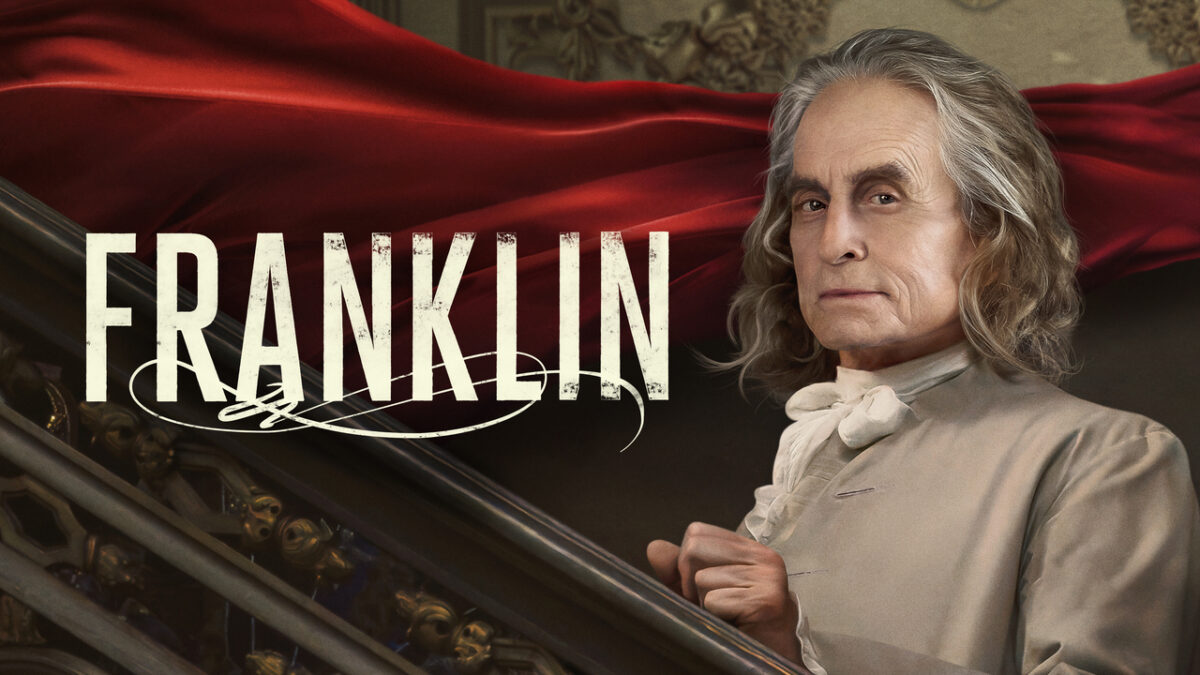by Bryan & Heather
Ah, Benjamin Franklin. Founding Father most likely to erroneously be named as a President, runaway printer’s apprentice turned Renaissance gentleman, infamous Lothario and cunning diplomat. For as well-known as Franklin is, most period dramas concerning the Revolution and Founders don’t deal with him in his own right, instead relegating him to supporting character if he receives a role at all–long absences abroad at the courts of Britain and France certainly make it easy to cut him out. Now, however, AppleTV+ has given the great man a show all his own, led by the indomitable Michael Douglas as the titular Founding Father.
Rather than cover the entirety of its protagonist’s long, fascinating life, Franklin focuses on perhaps the most consequential event: Franklin’s time in Paris attempting to convince the French to recognize American independence and assist the Patriots in their cause against Great Britain and subsequent peace negotiations. This the show does in impeccable yet personal detail, fleshing out the varied cast of characters not only in their official capacity as ministers, negotiators, merchants, and spies, but as people with their own desires, dreams, and faults. As Franklin attempts to balance his obligations to his new nation with his affection for his French acquaintances, he also navigates a complicated relationship with his grandson and secretary William Franklin Temple, a young man struggling with making his own way in the world while overcoming the shadow of his Loyalist father (Franklin’s son).
The problem with adapting a story out of such well-known history, of course, is that the major beats are never in doubt. Franklin will succeed in securing the French alliance and, ultimately, American independence, and any personal danger will not resolve fatally (Franklin died in 1790, seven years after the closing of the show). For us, this often resulted in something resembling apathy towards the show; we usually enjoyed each episode as we watched, but never found it so compelling as to look forward to watching the next. Yet aside from the opportunity to simply portray that story well for a modern audience–and it is indeed portrayed gorgeously, with impeccable attention to language, mannerisms, costuming and hairstyles of the period–there is something to be said for paying attention to the details and themes that may not be quite as familiar. The favor-based, almost corrupt, nature of European diplomacy, the less-than-idealistic motives of some of the Founders, and the relative youth of Lafayette all make this Revolutionary period piece feel fresh. Perhaps the greatest of these themes was just how inconsiderate Franklin and his colleagues were towards their French friends. Whether intentionally or not, the American ministers bankrupt their host family, preempt and exclude their allies from their peace treaty with Britain, and endlessly request more money from King Louis XVI while never pursuing any of France’s own objectives–not to mention Franklin’s personal wake of chaos among his various paramours. Astute viewers should be left feeling uneasy about just how clean the process of winning independence truly was, and students of modern foreign policy can find here the origins of America’s less-than-noble treatment of its allies.
For reasons of engagement and some adaptational liberties (the historical Temple went home to America with his grandfather and did not stay on in France like he does in the show), then, we cannot quite call Franklin a masterpiece, but on balance it remains a solid entry into the visual media canon of the Founding Fathers. Indeed, considering the lack of appreciation Franklin received in his own time for his role in securing our independence, it may in fact be long overdue, and one can do much worse when it comes to period pieces than watching Michael Douglas chew the Parisian scenery.
